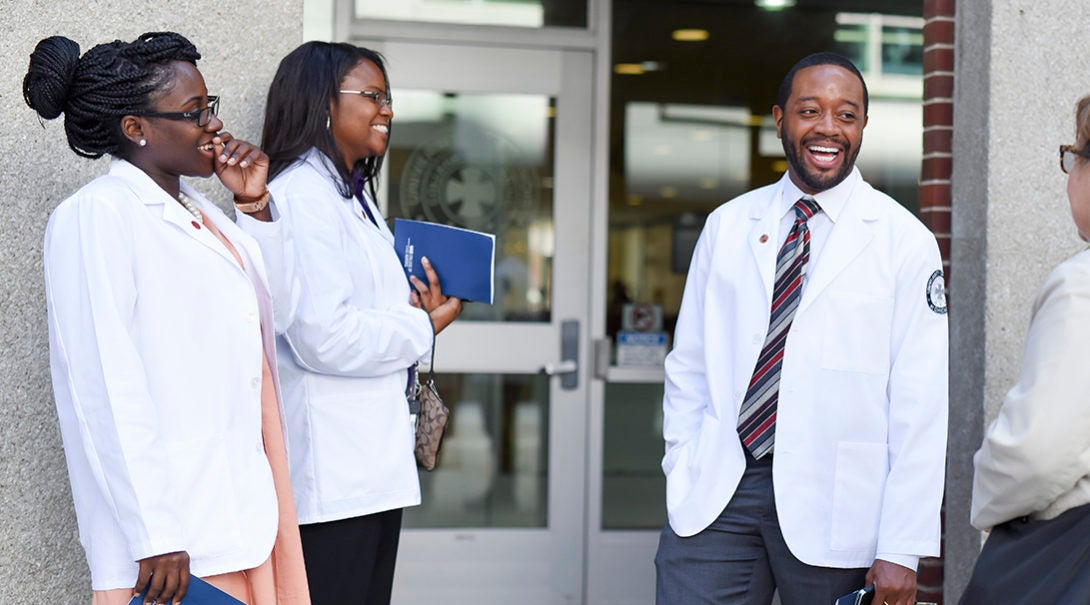Mentorship program targets underrepresented students
body

Twenty-one students participated in a 15-week mentorship program last winter and spring, created by the college’s Urban Health Program to support students who are traditionally underrepresented in nursing. This includes students who are first-generation, LGBTQ, and racial and ethnic minorities.
“We felt the need to help students cope with the significant challenges presented by the COVID-19 pandemic, racism, and sociopolitical unrest,” says Charese Smith, assistant director of the program. “We created this innovative mentorship program to increase social support, resiliency, and academic success among our undergraduate students.”
Using a group mentorship format, about eight students met weekly for 90-minute sessions with a faculty or staff mentor who served as a facilitator.
All facilitators were first-generation college graduates and identified as Black or African American. In addition to Smith, curriculum creators and facilitators included associate dean for equity and inclusion Phoenix Matthews, PhD, postdoctoral associate Ariel Smith, PhD, RN, and postdoctoral research associate Alysha Hart, PhD ’20, FNP.
“Including mentors who were also from diverse backgrounds provided students with opportunities for role models and the ability to see the possibility of people who look like themselves in leadership positions in higher education,” Matthews says.
Students participated from all three of UIC Nursing’s campuses with undergraduate programs – Chicago, Springfield and Urbana. The sessions, which included presentations, dialogue and an opportunity to share experiences, focused on academic and professional development resources specific to the needs of underrepresented students.
Smith says the program covered topics that might not be covered in a traditional mentorship program, such as the power of a “positive growth mindset” to advance students’ education and future careers as nurses.
Springfield undergraduate student U’Daria Smith says, through the program, she learned about the power of mental health to fuel success. She says she also found networking opportunities and built relationships with faculty and students who had similar interests and struggles.
“Within the program I learned the importance of advocacy, seeking help and motivation,” she says. “I learned how to be in control of my learning and how I can prevent obstacles from derailing my journey towards my nursing degree.”